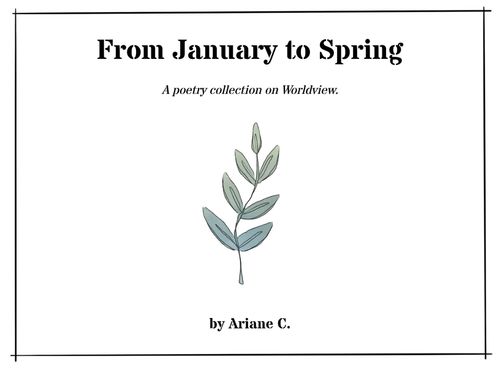…Are you a metaphor? ’cause there’s nothing that can compare to you.
Working With Words is a project both PLP grades 8 and 9 participated in this past month. We expressed our individuality and worldview through the form of poetry. A central focus was:
✏️ How might I construct text that shows who I am right now?
As we first began this project, I went in with much reluctance. I personally have always found poetry to be painfully boring and cliché (like YA novels… yet I still read them.)
However, to my surprise, I actually started to enjoy writing poetry along the way. There is something wonderful about not being confined to specific language rules, and being able to truly express oneself.
📝 Poetry Terms
Over the course of a few weeks, we learned about different types of poems, as well as different poetry terms we could utilize in our writing. Although I was originally not thrilled for the writing part, I loved receiving a vocabulary set to study.
It is really bizzare that the older you get, the less of a focus school gives on expanding your vocabulary. Sometimes, I feel like I use the same set of words every day, without a wide range.
I created a study guide of the poetry terms we were taught, in order to prepare for a test on those terms. In order to gain an understanding of what these terms meant, we analyzed a variety of different poems over time. Here are a few of my favourite poems that we viewed in class:
📚 Multi-touch eBook
As we learned more about poetic techniques, I began to compile my written poems into an eBook using Book Creator, seeing as that was our goal for our final product. It required an excessively large Things list, many hours spent panicking, and a whole lot of revision… but I managed. Check out my eBook below!
☕️ Virtual Coffee House
✅ Curricular Competencies
- Comprehend Constructively: What strategies do I use to comprehend text for meaning and impact?
I use the poetry terms we were taught in order to analyze poems. When analyzing, I ask myself questions such as “Is this a free verse poem, or does it have a rhyme scheme?”, or “What type of poem is this?”. I find that it helps determine the meaning the writer intends to portray. Examples of poems we analyzed in class are shown above.
- Creative Effectively: How do I create effective texts for a variety of purposes and audiences?
I feel that creating an effective text incorporates careful planning and thought. As we learned more about poetry, I wrote my worldview poems at the pace of the teachers’ recommended process accordingly. This ensured I did not feel the need to stress or cram my work last minute. Within my eBook, I included numerous types of texts, such as writing, drawings, audio, and more.
The Core Competency I chose to work on for this project was:
- Creative thinking: Profile 4: I can get new ideas or reinterpret others’ ideas in novel ways.
A specific example of how I demonstrated this competency is through my Found poem, “Value”, in my eBook. To those who are unaware, a found poem is essentially when words are made into poetry through changing the lines, adding, or deleting text. It feels a lot like plagiarism.
For my poem, I reinterpreted a scene from “The Book Thief” by Markus Zusak. In this scene the protagonist, Liesel, recognized her guardian as someone of importance and value, despite him being overlooked by most. Instead, I intended to change the meaning of the text to refer to how children are oftentimes more perceptive than adults, since they have not been restricted by the same boxes society forces onto most people’s worldview.
✨ Conclusion
In conclusion, poetry is very diverse; whether it be tranquil and peaceful, or mournful and melachonic. It can allow you to express yourself and help you to discover more about you who are. Although the process our class took enforced a few weeks of studying, revising, and analyzing… learning to write poetry does not necessarily require that. Instead, I encourage you to pick up a pen and learn to work with words rather than against them.








Leave a Reply